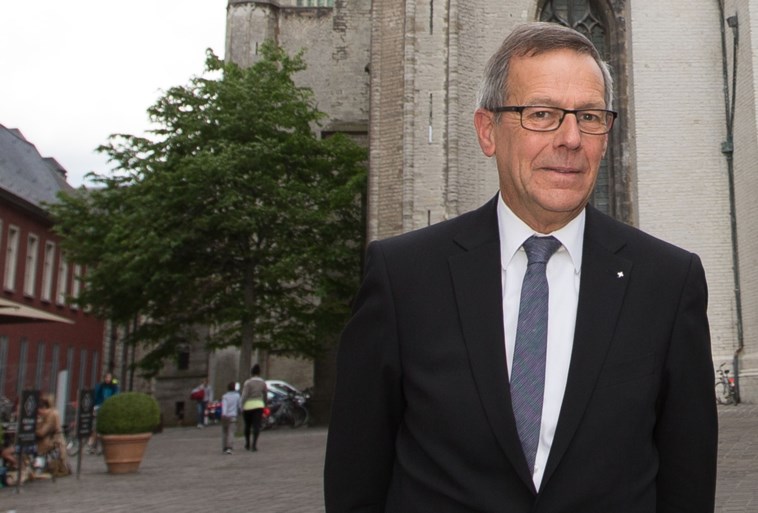
Priest Ludo Collin is the Cannon of Saint Bavo’s Cathedral in Ghent, Belgium and president of FRH member organisation, PARCUM – Flanders’ the museum and the centre of expertise on religious art and culture, formerly known as CRKC. He is the driving force behind the management and renovation of the unique 15th-century Ghent Altarpiece by the Van Eyck brothers. He is also involved in other religious heritage organisations such as FRH members Open Churches and “Het Orgel in Vlaanderen”. Religious heritage is a driving force in his life and career and as such possesses a wealth of knowledge and experience in the sector.
In honour of our 10th year anniversary, we’ve conducted an interview with Cannon Collin to learn his perspective on religious heritage and why he believes it needs to be protected.
What does religious heritage mean to you?
As a priest, I see religious heritage as the material expression of people’s faith or search for meaning in their daily lives here on earth. Not all of what we think or believe can be expressed in words. Therefore, during the centuries people have sought ways to express their emotions and religious thoughts. Religious heritage is not only the big masterpieces like the paintings of Rubens or Van Eyck, but also the smallest art objects in local parish churches. All of them tell stories about how people have looked and are looking to understand life and its meaning, their beliefs and how these have changed. Religious heritage also tells the story of local communities or materialises very personal memories of our parents, grandparents or neighbours. It is moreover the material expression of traditions that connect us with our ancestors.
What is one of the biggest challenges facing religious heritage?
In Western Europe, secularisation has led to the shrinking of religious communities who have always taken up the responsibility to manage and protect their religious heritage. A big challenge is to find new responsible volunteers or professionals when the current local volunteers cannot do this job anymore or local communities shrink or disappear. Another big challenge is to also involve people of other religious or non-religious backgrounds in the protection and promotion of our religious heritage. Our society is becoming more and more diverse, not only on a cultural level, but on a religious one as well. It is thus crucial to enter a dialogue with other Christian denominations, Jewish, Muslim and non-faith communities, and above all with people who do not directly see themselves linked to a specific religious community, but believe in its values and appreciate our history. In 2021, people are not against religious heritage. In post-secular Europe, people still remain interested in the big questions of life and death and a better knowledge of religious heritage can stimulate this debate.
What is one of the best ways we can protect religious heritage?
Precisely by creating more public support for religious heritage. When people are better aware of the stories behind religious objects, buildings and traditions and they recognise their own spiritual questions in what their ancestors created, religious heritage becomes their religious heritage rather than something from the past with which they feel no connection. Making the personal stories behind religious heritage accessible via apps, websites, films, books and qualitative exhibitions, walking trips, musical shows, etc. can guarantee that we all, as a society, find religious heritage important and work to protect for the following generations. This is important because it tells the story of the deeper significance our ancestors gave to their lives.
Why is it important to protect religious heritage?
I clearly believe that religious heritage is not only important for religious communities, but also for society as a whole. It is important to protect it because it illustrates that all generations have asked themselves big spiritual and emotional questions and have given material expression to it. Religious heritage is not something of a small marginalised group. Religious heritage tells us the story of people being, in the end, religious beings. Also, if society is deeply secularised, it illustrates that people have always sought it and will always search for ways to understand life in all its facets and how to form a community at a local level.
Ludo Collin, Ghent, Belgium 2021





Follow us: